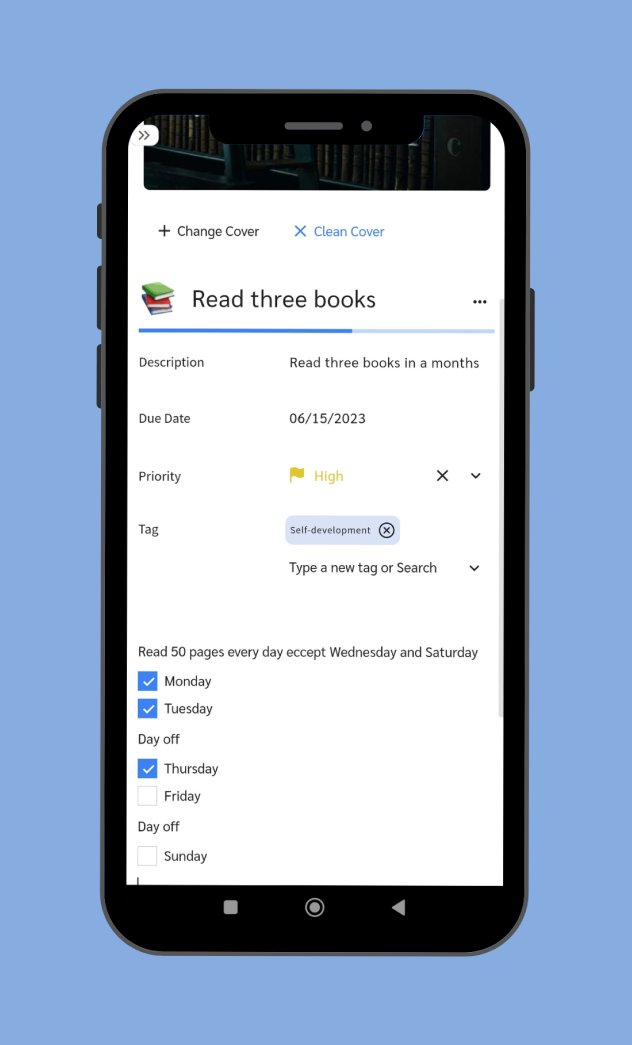Why is creating a list not enough to become ultra-productive?
Successful people don't work from a to-do list. The reason for this is an imperfect time management system. In this article, we're going to discuss the disadvantages of simple lists. We also present various tips on how you can effectively organize your life. You will find out how an alternative use of lists will improve your routine.

Okay, Google, what to do with unexpected bursts of productivity at 2 a.m.?
Once I had an argument with a person who believed that “night owls” and “morning larks” don't exist. "It's all a habit. If you have a clear system of organization, you won't rely on your mood, motivation, and productivity spikes." I immediately took this in stride, because I am an owl.
Based on my own experience, I sincerely believed that no methods would help me be awake in the morning, especially lists. I believed that creative and successful people necessarily live in chaos. I could walk around like a boiled sausage all day long, unable to pull myself together. But at night, productivity would wake up in me (I'm sure a lot of people can relate) I even created lists of things to do, like read 3 books in a month, start doing yoga, sign up for design courses, or build a shuttle on Mars. And when I woke up the next day, I didn't pay attention to those lists anymore. Imagine if Bill Gates, Michael Jordan, or Angelina Jolie managed their time like that.
In the end, I got myself into trouble with this regime. I needed to find a way to effectively organize myself. I still think there are early birds and night owls. Now I'm sure that despite their personalities, both types of people can manage their plans to be successful. Ultra-productive people don't have any secret, nor do they have a magic wand. However, the success of famous people is not built on lists.
So what's wrong with these lists, and why shouldn't you use them for productivity? Read on to find out.
1. Five global disadvantages of ordinary lists

No link to a specific time
Let's imagine a situation. You are walking around the city and accidentally meet an old friend. Or, once in a thousand years, you start a conversation on social media. You agree to meet one day and then just return to your life. How many times have you actually met after such agreements? Don’t tell the answer, I know it. Most commonly it is a purely symbolic phrase, just a courtesy.
But it also happens in another way. There are people you really want to meet again soon. In this case, you look for a mutually convenient date and time, choose where to go. It sounds more like planning, right? It's the same with lists. When your plans or tasks have a specific date or time reference, you get a sense of responsibility and the passage of time.
IXORD drew attention to this feature of the organization. We have already added a calendar function to the app. Updates are constantly being implemented according to the needs of users.
Of course, no one can deny the fact that a task tied to the calendar cannot be canceled, forgotten, or ignored. So there are some more challenges and ways to overcome it
Lack of reminders
Writing a task on a list, or even adding it to your calendar, doesn't mean you'll get it done. Reminders are a powerful tool that would prevent the accumulation of unfinished tasks. Of course, spamming reminders on all the lists would blow your socks off, it would be too much. But a customized reminder system will be able to put a plan with its deadline in your memory. Imagine that you have to go to the dentist's on Wednesday at 4:00 pm. You put it on your list two weeks before the appointment. A week later, the list notifies you that you have an appointment. Then again in a day and the last time in an hour. It's not too much to be annoying. At the same time, it's not too little to make you get ready at the last minute and rush to be on time.
IXORD is already thinking about this possibility. We want to equip our lists with reminders. So wait for updates and be the first to experience the convenience of this feature.
Global plans seem unrealizable
If you're not going to finish a task or implement a plan in a couple of hours, break it down into steps. This way, you won't feel like you're doing nothing but working on one thing and not seeing any progress. In fact, by breaking down even the simplest tasks into steps, you can complete them without feeling overwhelmed.
A list that involves, for example, working on several long-term tasks per day sometimes looks like this:
This single list contains too many different tasks. They do not complement each other but only defocus attention. Also, the plans are not broken down into steps, and it is not clear when they are expected to be completed.
Lists in the photo and in the text below are much more convenient for such long-term tasks. They have references in time, divided into milestones or daily steps, as well as prioritization.

Each of these points is complex and challenging, but breaking them down into these categories can help provide a starting point for planning and execution
Compare the two lists and decide for yourself which planning will help and which will only cause irritation.
The pressure of unfinished tasks stresses out
There is probably a certain place in the world where all the global tasks that require patience and time are stored. They may be having fun together there, but is this how you imagined progress when you put that task on the list? Unfinished tasks demotivate. The longer an item is on the list, the further it is postponed. You feel stressed because the task is not completed. You constantly think that you need to return to it and it takes energy. There are different solutions. Try moving the uncompleted item down the list and return to the task when the higher items are completed. Do what fires you up at first, forget about the task for which you have no motivation for a while.
If you need to complete that task by a certain time, try another method. This has already been mentioned above, but let's go into more detail. If you don't like the task or it seems too difficult, break it down into 5 minutes of work. Let it become not one big uninteresting task, but several super simple actions.
Plan only work-related activities
If you've started planning your day in detail, don't forget to include your leisure time in the list. Be sure to book time for a walk, family and friends, hobbies, or just lying down watching a TV show. Because it may seem like success is about doing more and 24/7. But living in this mode only leads to burnout, seriously. Don't forget about quality rest to be successful happily.
So these were 5 powerful tips for turning on the maximum power of productivity and planning.
In conclusion, here is a checklist of additional performance recommendations:
Even simple lists can be the key to ultra-productivity if you use them to their fullest potential. After all, you don't need to use a bunch of tools to achieve your goals. It's more efficient to take everything from one workspace, to keep everything important in one place.


